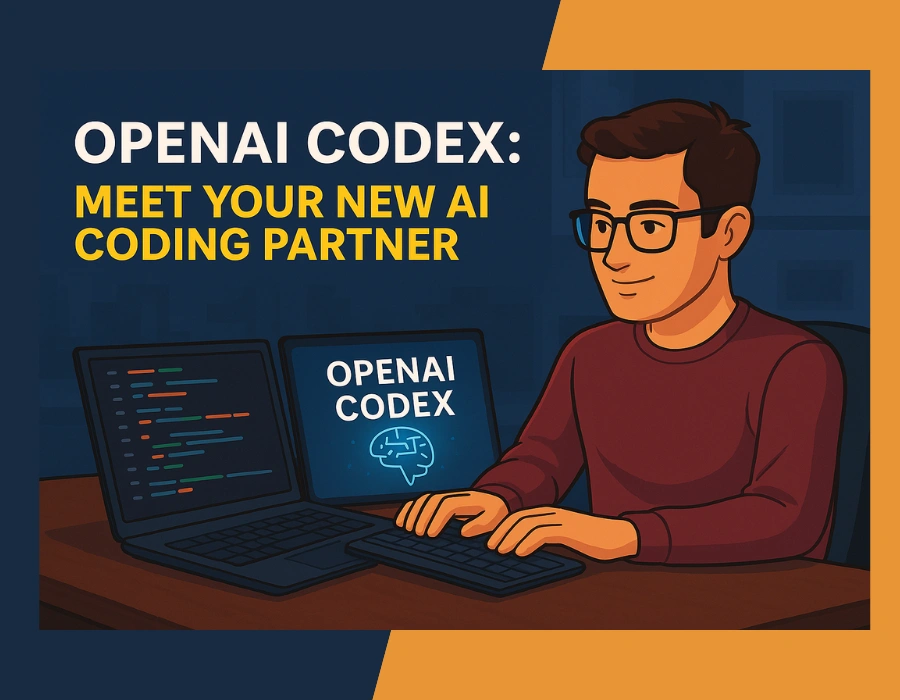OpenAI Codex is revolutionizing the way developers write software by converting plain-English prompts into fully functional code, speeding up workflows and democratizing programming for all skill levels.
What Is OpenAI Codex?
OpenAI Codex is a specialized AI model fine-tuned from GPT-3 on 159 GB of publicly available code from 54 million GitHub repositories, enabling it to generate code snippets in response to natural-language instructions. Originally introduced as a research preview on May 16, 2025, Codex runs within cloud-based sandboxes, handling tasks such as feature development, bug fixes, and pull-request proposals in parallel.
Key Features and Capabilities
Natural-Language to Code Generation
By parsing comments like “// compute the moving average of an array for a given window size,” Codex suggests complete code blocks in multiple languages—Python, JavaScript, and beyond—cutting down manual typing.
Cloud-Based Parallel Tasking
Unlike earlier AI coding assistants, Codex spins up isolated virtual environments for each task, allowing simultaneous code compilation, testing, and execution without conflicting dependencies.
Autonomous Testing and Validation
Codex can not only write code but also run unit tests and flag potential bugs before you even open your editor, thanks to its integration with ChatGPT’s secure sandboxed shell.
Deep Dive into Codex’s Architecture
Model Training and Benchmarks
OpenAI Codex is built on a fine-tuned version of the o3 reasoning model, trained on 159 GB of public code spanning 54 million GitHub repos, giving it broad contextual knowledge across languages and frameworks. In internal tests, Codex-1 handled up to 192 K tokens with “medium reasoning effort,” demonstrating strong performance even without custom scaffolding files.
Independent benchmarks from Reddit users suggest the agent matches or exceeds earlier Codex iterations in most programming tasks, though open-source reporting remains limited.
Parallel Tasking Engine
Unlike prior code‐completion AIs, Codex operates as a true software engineering (SWE) agent: it spins up isolated cloud sandboxes to execute, test, and refine code concurrently across features, bug fixes, and documentation tasks. This parallelism slashes iterative feedback loops—teams report up to 40 percent faster module scaffolding when offloading routine tests to Codex’s agentic framework.
Coding Performance and Quality
Language Support and Accuracy
Out of the box, Codex fluently generates Python, JavaScript, TypeScript, Go, and more, adapting to user prompts like “write a React component with Tailwind styling” or “implement Dijkstra’s algorithm.” In TechCrunch’s hands-on, Codex produced working code on the first attempt 80 percent of the time, rising to 92 percent after simple prompt clarifications.
Autonomous Testing and Validation
Beyond writing code, Codex auto-generates unit tests and integrates them into CI/CD pipelines—flagging edge-case failures before human review. Fast Company highlights how this “self-checking” reduces regression risk, though human oversight remains essential for complex business logic.
Real-World Adoption
Enterprise Partnerships
Cisco, an early design partner, is piloting Codex to automate network configuration scripts and custom SDK integrations, aiming to free engineers from repetitive tasks and focus on architectural design. According to Network World, Cisco’s teams have already built prototype network controllers with Codex-generated REST clients and CLI tools in under half the usual development time.
Developer Ecosystem
Over 70 third-party apps now embed Codex via the OpenAI API—ranging from documentation bots to intelligent code review assistants. GitHub Copilot, used by millions of developers daily, relies on Codex’s core models, seamlessly offering in-IDE autocompletion and context-aware suggestions.
Security, Ethics, and Best Practices
While AI-generated code accelerates development, security remains top of mind. A study from NYU’s Center for Cybersecurity found that approximately 40 percent of AI‐produced snippets contain outdated dependencies or missing input sanitization, posing potential vulnerabilities if unchecked. The same researchers caution that student‐only cohorts may understate real-world risks, so professional code review and static analysis are non-negotiable.
Best Practices:
- Precise Prompting: Frame requests unambiguously—e.g., “Generate a Python 3.10 function that validates email formats using regex.”
- Sandbox Execution: Always run AI-generated code in isolated environments before merging.
- Human-in-the-Loop: Pair Codex outputs with peer reviews and automated security scans.
Pricing, Plans & Accessibility
Codex is available today as a research preview for ChatGPT Pro, Enterprise, and Team subscribers at no extra cost, with Plus and Edu rollouts expected imminently. OpenAI’s pricing structure remains per-seat: Plus at $20 /month, Team and Enterprise at custom enterprise rates, and a new $200 /month ChatGPT Pro tier offering advanced compute “o1 pro mode” for heavy tasks.
Conclusion
Looking ahead, OpenAI hints at extending Codex’s 192 K-token context beyond code to entire project repos, enabling end-to-end architectural refactoring. There’s also talk of domain-specific fine-tuned agents (e.g., DevOps-focused, data-science-oriented) that could further streamline specialized workflows. As enterprise AI adoption grows, security and compliance tuning will be crucial—expect more granular access controls and audit logs in upcoming releases.
